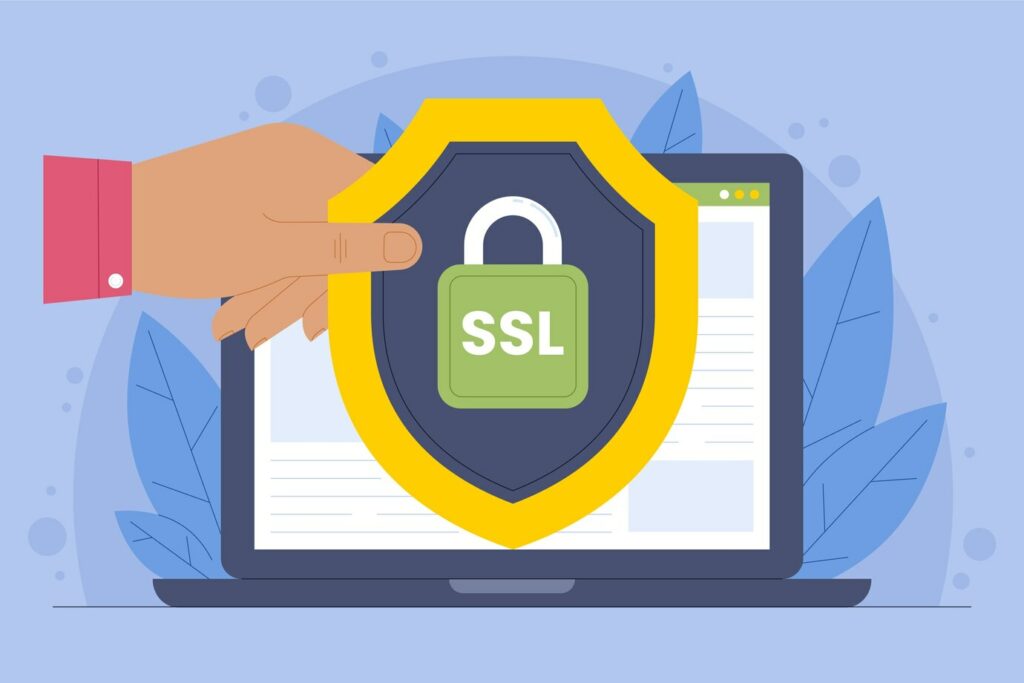Table of Contents
Why SSL Certificate Matters for Your Website?
In today’s digital age, security is paramount. Whether you’re running a small blog, an e-commerce site, or a corporate website, ensuring the safety of your visitors’ data should be a top priority. One crucial element in web security is the SSL certificate. But what exactly is an SSL certificate, and why does it matter for your website? Let’s dive in.
What is an SSL Certificate?
SSL stands for Secure Sockets Layer. It is a security protocol that establishes an encrypted link between a web server and a browser. This ensures that all data passed between the server and browser remains private and integral. An SSL certificate is a digital certificate that authenticates a website’s identity and enables this encrypted connection.

Why SSL Certificates are Essential
1. Data Protection
The primary function of an SSL certificate is to protect server-client communication. When SSL is installed, every bit of information is encrypted. In layman’s terms, the data is locked and can only be unlocked by the intended recipient (browser or server). This is particularly important for websites that handle sensitive information such as credit card numbers, personal data, and login credentials.
2. Trust and Credibility
Websites with SSL certificates display a padlock icon in the address bar. In some cases, they may also show a green address bar, especially for Extended Validation (EV) SSL certificates. These visual cues assure visitors that your website is secure, boosting your credibility and trustworthiness. Users are more likely to engage and transact with websites they trust.
3. SEO Benefits
Google has made SSL certificates a part of its ranking algorithm. Websites with SSL certificates rank higher in search engine results compared to those without. This means that having an SSL certificate can give you an edge over your competitors and increase your website’s visibility.
4. Compliance with Standards
Many regulatory standards require websites to use SSL certificates to protect user data. For instance, the Payment Card Industry Data Security Standard (PCI DSS) mandates the use of SSL certificates for any site that handles credit card transactions. Ensuring compliance can save your business from potential legal issues and fines.
5. Improved User Experience
Modern browsers, such as Google Chrome and Firefox, flag websites without SSL certificates as “Not Secure.” This warning can deter visitors from interacting with your site. By securing your website with an SSL certificate, you provide a seamless and reassuring user experience, encouraging visitors to stay longer and explore your content.
How to Get an SSL Certificate
Obtaining an SSL certificate is relatively straightforward. Many web hosting providers like Hostgator, Namecheap offer SSL certificates as part of their hosting packages. There are also various Certificate Authorities (CAs) where you can purchase an SSL certificate. Depending on your needs, you can choose from different types of SSL certificates, such as Domain Validated (DV), Organization Validated (OV), and Extended Validation (EV) certificates.
Conclusion
In a world where cyber threats are constantly evolving, securing your website with an SSL certificate is not just an option; it’s a necessity. An SSL certificate not only protects your data but also builds trust with your visitors, improves your search engine ranking, and ensures compliance with regulatory standards. Investing in an SSL certificate is investing in the future of your website and business.
Make the smart choice today. Secure your website with an SSL certificate and enjoy the peace of mind that comes with knowing your site is protected.


